Search Results
Showing results 81 to 100 of 147

Caring Together: Activity Stations
Source Institutions
In this Bob the Builder(TM)-themed activity, learners explore the 3Rs (Reduce, Reuse, Recycle) by rotating through several activity stations.

Moving On Up: Capillary Action 1
Source Institutions
Over the course of several days, learners explore the property of water that helps plants move water from roots to leaves or gives paper towels the capacity to soak up water.

The Wander of Pollen
Source Institutions
In this activity/demonstration, learners explore pollen and how insects and animals transport pollen. Learners investigate and compare wind and animal pollination.

Fuzzy Worms
Source Institutions
In this activity, learners explore the concepts of natural selection and observable traits in a game that can be played at home.

Oil Spill Solutions
Source Institutions
In this activity, learners explore how environmental engineers might approach solving the problem of an oil spill.
Composting: A Scientific Investigation
Source Institutions
In this activity, learners conduct a scientific investigation involving decomposition and discover that the life cycle of trash is affected by its organic or inorganic nature.
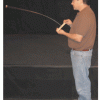
Inverted Foucault Pendulum
Source Institutions
In this demonstration, learners explore a variation of a Foucault pendulum, but upside down.

Acid Rain
Source Institutions
In this chemistry demonstration, acid rain is simulated in a petri dish.
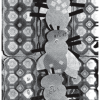
Bee Builders
Source Institutions
In this activity, learners make a model of a beehive using simple materials.
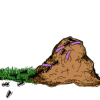
ANTacid: Indicator Paper on an Anthill
Source Institutions
In this activity, learners make acid/base indicator paper, place the indicator paper on an anthill, disturb a bunch of ants, and then observe what happens!

Canned Heat
Source Institutions
In this activity, learners explore how light and dark colored objects absorb the Sun's radiations at different rates.

Burning Issues
Source Institutions
Learners use a candle to investigate the products of combustion. When a glass rod is held over a lit candle, the candle flame deposits carbon on the rod.

Sustainable Fishing
Source Institutions
In this activity, learners use a model for how fishing affects marine life populations, and will construct explanations for one of the reasons why fish populations are declining.
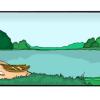
Rock Bottoms
Source Institutions
Learners add acid rain (nitric acid) to two cups that represent lakes. One cup contains limestone gravel and the other contains granite gravel.

The Carbon Cycle and its Role in Climate Change: Activity 2
Source Institutions
In this activity (on page 7), learners explore the meaning of a "carbon sink." Using simple props, learners and/or an educator demonstrate how plants act as carbon sinks and how greenhouse gases cause
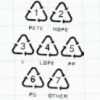
Sink or Swim?
Source Institutions
In this activity, learners identify different plastics in a mystery bag. Learners discover that plastics are classified #1 through #7.
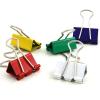
Clipbirds
Source Institutions
In this simulation of natural selection, learners use binder clips in three different sizes to represent the diversity of beak sizes in a bird population.
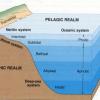
Introduction to Ocean Zones
Source Institutions
In this activity, learners will create a diagram of the ocean zones and determine what organisms live in each zone.
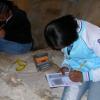
Fossil Age Estimation Model
Source Institutions
In this activity (page 1 of the PDF under SciGirls Activity: Dinosaurs), learners will model how paleontologists estimate the age of fossil discoveries by extracting “fossil” playing cards from newspa
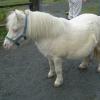
Wild or Domestic Animal Game
Source Institutions
In this quick activity (page 2 of PDF), learners will play a game using their observation and listening skills, interpreting clues from each other to deduce their secret animal identity.
